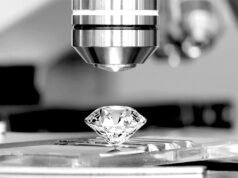I know it’s a bit of a controversial topic, especially for people who don’t want to skimp on their fat intake, but research suggests that eating fat may not make you fat all that much. In fact, higher intake of fat is associated with lower risk of obesity and diabetes, and some fat even has cardio-protective benefits. So, is there a case for a “healthy fat’ diet?
It’s no secret that many can’t eat a lot of fat without gaining weight. But, is fat really the key to gaining weight? A study conducted by the University of Texas last year looked at the fat content in the diets of over 9,000 people and found that people who consumed the most fat gained the most weight. But, does this mean that fat causes weight gain? Not exactly. There are several factors involved, including genetics, how much our bodies burn fat, and how much we eat.
People are often surprised to learn that eating fat does not make you fat. In fact, consuming fat can help you lose weight, maintain healthy cholesterol levels and even improve energy. This is because fat is actually a highly useful substance that your body uses for nearly every function. In fact, your body can’t survive without it.

Is it true that consuming additional fat with fat bombs and bulletproof coffee causes you to gain weight? The simple answer is as follows: Both yes and no.
Eating fat won’t make you fat if you’re already skinny. If you’re obese or overweight, consuming extra fat will almost certainly make you fatter. Allow me to explain. Of fact, the solution has less to do with calories and more to do with physiology.
Let’s take a step back. The ketogenic diet (Low Carb High Fat) recommends that you eat the majority of your calories as fat. They are required to consume actual food till they are satisfied. Some individuals believe that this entails putting additional fat in everything they consume, as shown by the popularity of fat bombs (high-fat snacks or meals) and Bulletproof coffee (coffee with added oils) (MCT, coconut, etc). Some individuals believe it hinders weight loss, while others believe the reverse. So, what exactly is going on here?

Insulin has a significant role in weight growth. When you gain weight, your body reacts by producing more leptin, a hormone that signals your body to stop gaining weight. It’s a negative feedback loop that prevents us from gaining too much weight. Obese animals who can’t move properly get eaten, thus this is a survival strategy. So, why doesn’t it seem to be working for us?
Insulin and leptin are almost diametrically opposed hormones. One instructs the body to accumulate fat, while the other instructs it to stop. When we consume fructose on a regular basis, we develop insulin resistance and a continuous rise in insulin, which stimulates leptin. Consistently high hormone levels, like with other hormones, cause downregulation of hormone receptors and the development of resistance. As a result, chronically elevated leptin levels ultimately develop to leptin resistance, which is precisely what we observe in obesity. Leptin sensitivity is seen in slim individuals, whereas leptin resistance is found in fat people.
Consumption of fat physiology
Let’s have a look at the physiology of fat intake in the diet. Remember that the body can only burn one of two kinds of fuel: either sugar or fat. When you consume carbohydrates, they pass via the portal vein into the liver, where they activate insulin, which tells the body to start burning the sugar and store the remainder as glycogen or fat.

Dietary fat, on the other hand, accomplishes none of these objectives. It is absorbed in the gut as chylomicrons, travels via the lymphatic system to the chest tube, and enters the systemic circulation directly (not the portal circulation of the liver). It then travels to fat cells to be stored. In other words, fat has no effect on the liver, which means it does not need insulin signaling and goes straight into fat stores.
So, if you consume fat, you’ll become fat? No, it’s not. Let’s start with a skinny individual (leptin sensitive). Do you recall Sam Feltham’s 5,000-calorie-a-day diet experiment? He ate a lot of calories every day but didn’t gain any weight (53 percent fat, 10 percent carbs). When you consume a lot of fat, it gets stored in your fat cells, but your insulin levels stay the same. Leptin levels rise in tandem with body fat levels. Because a thin person is sensitive to leptin, they will stop eating and lose weight. If you force feed him, like Sam did, his metabolism would likely accelerate up in order to burn more calories.

What happens when a person who is overweight consumes too much fat?
Consider the case of an obese individual who is resistant to leptin. Your insulin will not increase if you consume a lot of food and a lot of fat. This fat bomb, on the other hand, travels directly to the fat stores. As a result, the amount of leptin in your blood rises. However, there is a distinction to be made. Your body is unconcerned. It’s resistant to the hormone leptin. Your metabolism will not be boosted in this manner. Your hunger isn’t going to go away. None of the weight-loss benefits of eating this fat bomb materialize. Yes, you will need to burn the excess fat you have acquired at some time.
The following are the practical consequences. If you’re thin and sensitive to leptin, eating extra dietary fats like B. Cheese won’t make you gain weight. If you’re attempting to lose weight and have problems with obesity, insulin resistance, or leptin resistance, adding additional fat to your diet isn’t a good idea. Again, we don’t need to rely on the antiquated and ineffective notion of calories. Obesity is caused by a hormonal imbalance rather than a calorie deficit.
What other options do you have? Eating extra carbohydrates, on the other hand, is not a healthy idea. You should also avoid consuming too much protein. You don’t need to consume any extra fat either. What does this imply for us? Fasting is what we call it when we do something like this.
You may be worried about nutritional deficits at this time. That’s why nutritional density is such a popular topic. How can you obtain the most nutrients for the least amount of calories? This strikes me as a perplexing notion. Consider this: are you worried about weight or nutritional deficiencies? If you chose fat, you must deal with it. They don’t need more nutrients; rather, they require less. That’s all we have to say.
If you’re worried about nutritional inadequacies, address them, but don’t confuse this with obesity treatment. If you’re concerned about getting scurvy since you’re z. B., consume foods high in vitamin C. However, it has no bearing on the management of obesity.
Obesity and nutritional insufficiency are two totally distinct issues. Don’t get the two mixed up. I don’t treat beriberi; I treat fat. As a result, I’m worried about hyperinsulinemia/insulin resistance/leptin resistance reversal. No, adding extra fat will not help you lose weight if you are leptin resistant.
You should avoid fat bombs at all costs.
Jason Fung, Ph.D.
I get this question all the time, and I always have a long answer. But there is a simple answer. It is the same for everyone, and it is the most obvious thing in the world. Just eat less fat. Eat less fat and you do not need to worry about fat making you fat. Fat is a calorie, and if you eat less fat, you will have fewer calories. You don’t need to eat fat to stay healthy, but when you are hungry, you can eat fat.. Read more about what makes you fat and let us know what you think.
{“@context”:”https://schema.org”,”@type”:”FAQPage”,”mainEntity”:[{“@type”:”Question”,”name”:”Does eating more fat make you gain weight?”,”acceptedAnswer”:{“@type”:”Answer”,”text”:”
Its not a good idea to eat more fat. There is no evidence that eating more fat will make you gain weight, but there is evidence that eating too much of any food can lead to obesity and other health problems.”}},{“@type”:”Question”,”name”:”Can eating more fat help you lose weight?”,”acceptedAnswer”:{“@type”:”Answer”,”text”:”
No. Eating more fat does not help you lose weight.”}},{“@type”:”Question”,”name”:”What happens when you eat more fat?”,”acceptedAnswer”:{“@type”:”Answer”,”text”:”
Eating more fat can lead to weight gain and obesity.”}}]}
Frequently Asked Questions
Does eating more fat make you gain weight?
Its not a good idea to eat more fat. There is no evidence that eating more fat will make you gain weight, but there is evidence that eating too much of any food can lead to obesity and other health problems.
Can eating more fat help you lose weight?
No. Eating more fat does not help you lose weight.
What happens when you eat more fat?
Eating more fat can lead to weight gain and obesity.
Related Tags
This article broadly covered the following related topics:
- does eating fat make you fat
- what makes you fat
- does eating animal fat make you fat
- does fat make you fat
- does eating fat make you fat reddit



